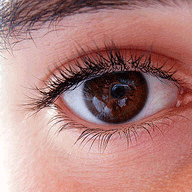All Eyes on the SERPs

 Mari Carmen Marcos and Cristina Gonzalez Caro from Pompeu Fabra University in Barcelona might not have known that their recently released eye tracking research (available here in Spanish and translated with commentary here at dynamical.biz - originally appeared in El profesional de la informacion) would be so important for those involved in search marketing - but it is. The study analyzes whether the intention behind queries affects the way people browse the results page, the relationship between gaze patterns, and intent while performing queries.
Mari Carmen Marcos and Cristina Gonzalez Caro from Pompeu Fabra University in Barcelona might not have known that their recently released eye tracking research (available here in Spanish and translated with commentary here at dynamical.biz - originally appeared in El profesional de la informacion) would be so important for those involved in search marketing - but it is. The study analyzes whether the intention behind queries affects the way people browse the results page, the relationship between gaze patterns, and intent while performing queries.
Participants attempted different types of queries - informational (the user wants to obtain information such as a phone number), navigational (the user wants to find a particular website), transactional (the user wants to perform an action like download software), and multimedia (wants to find a photo or video) - and their visual attention and the time of their visual attention on various elements was tracked.
The sample respondent size was relatively small at 58 participants and the search engines limited (Google, Google Images, Yahoo! and Yahoo! Images) but the results and the information we can glean is immensely valuable.
One of the interesting notes from the study was that of the total amount of queries performed only 39% had sponsored ads: 36% on informational queries (77 pages), 43% on navigational (25 pages), 76% on transactional (56 pages), 0% on multimedia (0 pages).
Results for Informational Intent Queries: Users focused more on the snippet element (description) when deciding whether the result was consistent with the information they were looking for. The title was in the second position and URL third.
Results for Navigational Intent Queries: Users tended again to focus on the snippet for these type of queries, following closely by title and URL a distant third. Fixation on sponsored results represented 5% of respondents time which is nearly double that of informational intent queries (2.8%).
Results for Transactional Intent Queries: The title and snippet were fixated upon nearly equally for these type of queries - 42% and 43% respectively - with 15% of fixations for the URL. The number of fixations on sponsored results for transactional queries was 9.8% - the highest of all query types.
Results for Multimedia Intent Queries: No surprise here really - the amount of time and attention for these types of queries - 76% and 71% respectively - are on the images themselves.









